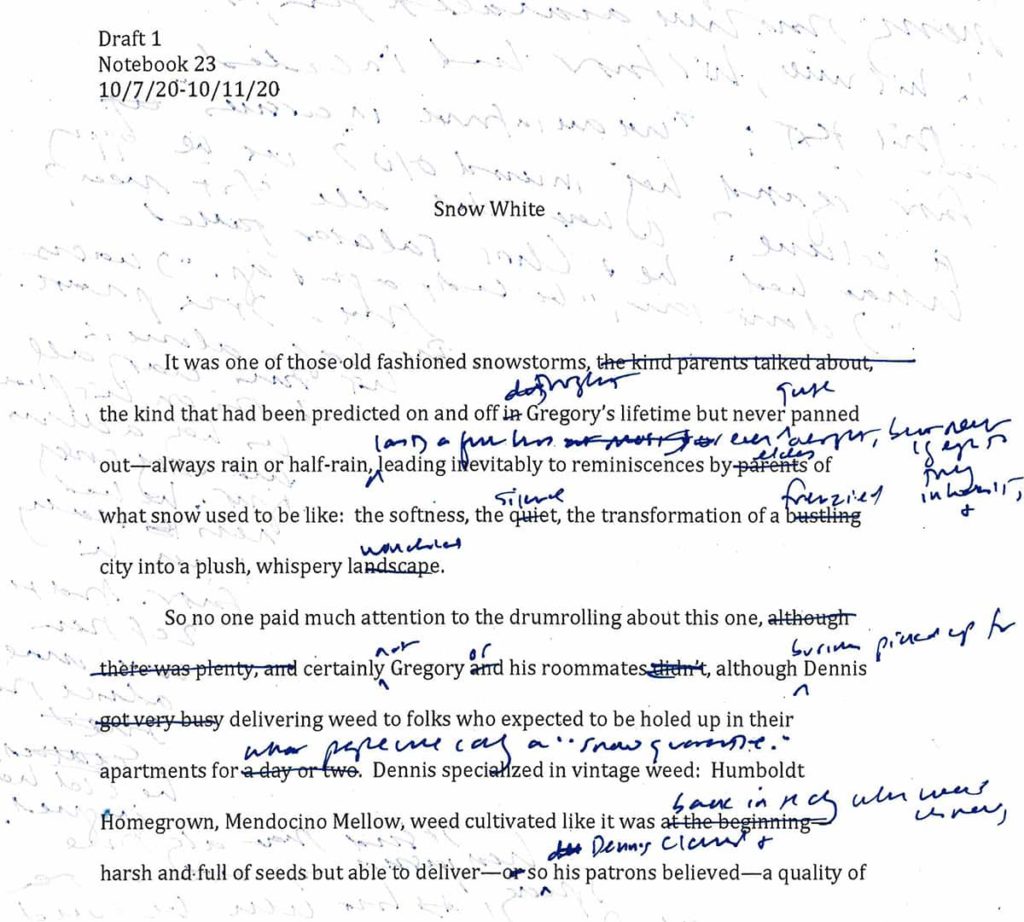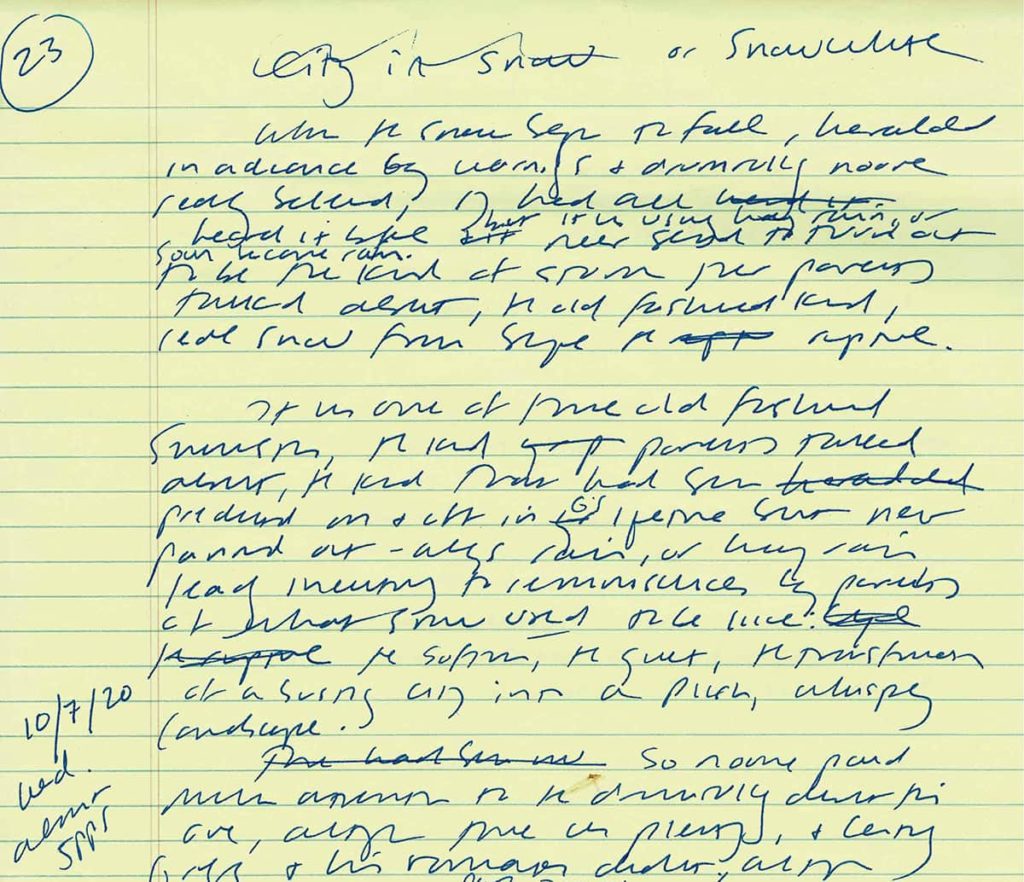Eureka Gold
1
It was billed as one of those old-fashioned snowstorms, the kind that had been predicted throughout Gregory’s twenty-eight years but never quite panned out (according to his father), always devolving into rain or half-rain, icing up or turning prematurely to slush, and leading, at the Sunday family dinners Gregory sporadically attended, to nostalgic reveries from his father—who’d walked New York a lot before he got famous—about what real snowstorms used to be like: the softness, the silence, the transformation of a frenzied city into a plush, whispery terrain.
“You say that every single time, Dad,” Gregory would huff. “Word for word.”


“Do I?” His father always seemed surprised.
Now, from his waterbed, Gregory could hear his roommate bustling around their small common area preparing a spate of last-minute weed deliveries to ease people through snow quarantine. “Guess who’s on my list,” Dennis called. “Athena.”
“No way,” Gregory said.
“Third time. She’s way into the antique thing.”
Dennis sold vintage weed: Humboldt Homegrown, Eureka Gold, weed from back in the day when marijuana was leafy and harsh and full of seeds but delivered a high that was the weed equivalent of vinyl: “whorled” and “crosshatched,” “sonorous” and “plump” (Dennis’s MFA in poetry served him well in these marketing descriptions)—in other words, authentic in ways that the bloodless, odorless tinctures that passed for weed nowadays were not.
“How is our Athena?” Gregory projected, with effort, toward his open bedroom door. In the weeks since a mysterious fatigue had confined him to his bed, Gregory and Dennis had perfected the art of conversing between rooms.
“Unchanged,” Dennis said. “Topical. Fearsome.” He popped briefly into Gregory’s doorframe.
“Poison,” Gregory said.
“Aaaaaant.” Dennis made a buzzer noise. “Word-casing.”
“True,” Gregory reflected. “ ‘Poison’ is no longer toxic.”
“ ‘Toxic’ isn’t toxic,” Dennis said.
“ ‘Toxic’ is anodyne,” Gregory agreed. “ ‘Robust’ is limp. ‘Catalyze’
fails to react.”
“The ‘silos’ and ‘buckets’ are empty,” Dennis said.
“What about ‘empty’?” Gregory said. “Is ‘empty’ empty?”
“ ‘Empty’ is supposed to be empty,” Dennis said. “ ‘Empty’ fails by being full.”
“But does ‘empty’ convey enough emptiness?”
They could do this all day…